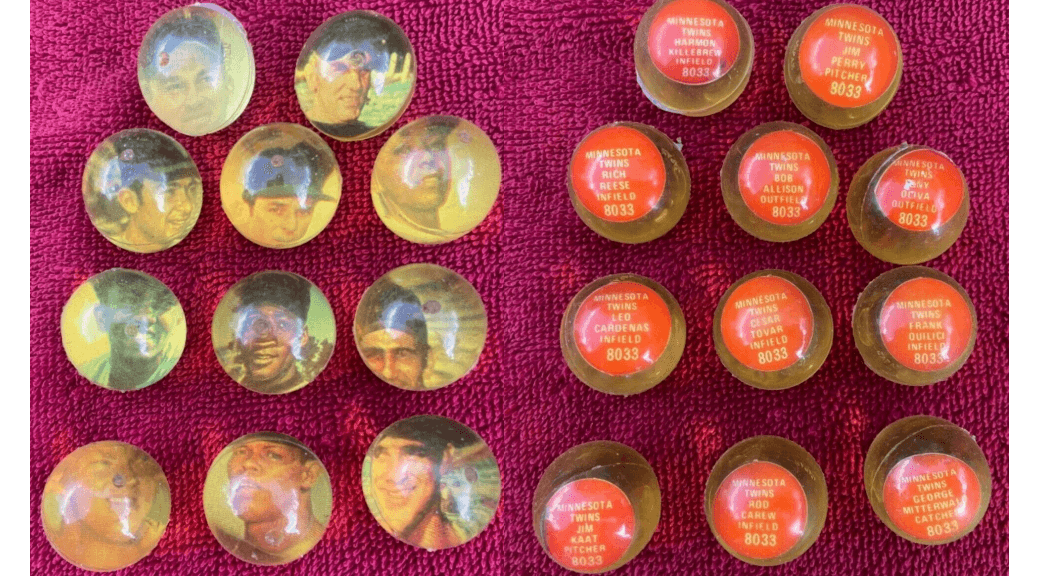CLEVELAND 3, MINNESOTA 1 IN CLEVELAND
Date: Tuesday, April 28.
Batting stars: Brant Alyea was 2-for-3 with a walk and a stolen base. Leo Cardenas was 2-for-4.
Pitching stars: Jim Perry pitched a complete game, giving up three runs (one earned) on seven hits and no walks and striking out five.
Opposition stars: Tony Horton was 2-for-4 with a double and two RBIs. Vada Pinson was 2-for-4 with a double. Roy Foster was 2-for-4. Barry Moore pitched eight innings, giving up one run on six hits and three walks and striking out four.
The game: The Twins got two singles in the second but did not score. They got on the board in the third when Cesar Tovar hit a one-out triple and scored on a Cardenas single. The Indians tied it in the fifth when singles by Horton and Foster put men on first and third with none out and a double play brought a run home.
The Twins missed chances in the seventh and eighth. In the seventh Alyea singled and stole second and Frank Quilici was intentionally walked, putting men on first and second with two out and bringing up Perry. He reached on an error, but Alyea was thrown out trying to score from second, ending the inning. In the eighth, Cardenas singled and two-out walks to Tony Oliva and Alyea loaded the bases, but Rich Reese fouled out to end the inning.
It cost them, because Cleveland broke through in the ninth. After Killebrew missed a foul popup, Ted Uhlaender singled with one out. He was forced out, but a single by Pinson put men on first and second with two down. Horton then hit a two-run double, making it 3-1 Indians. The Twins got the leadoff man on in the ninth when Paul Ratliff was hit by a pitch, but the next three batters flied out.
WP: Moore (2-1).
LP: Perry (3-1).
S: Phil Hennigan (1).
Notes: Quilici remained at second base in the absence of Rod Carew. The Twins used three pinch-hitters in the ninth. Ratliff batted for George Mitterwald, Jim Holt batted for Quilici, and Charlie Manuel batted for Perry.
Alyea raised his average to .413. Tovar was 1-for-5 and was batting .329. Oliva was 0-for-3 and was batting .324. Killebrew was 0-for-4 and was batting .308. Perry had an ERA of 2.19.
Mitterwald was 1-for-3 and was batting .170.
It's always fun to second-guess fifty-year-old managerial decisions. In the seventh, with a man on second and two out, Cleveland manager Alvin Dark intentionally walked Quilici, bringing up the pitcher's spot. Quilici was not a very good batter (career .214/.281/.287). He was better than Perry, but not by a lot (career .199/.228/.247). And, of course, there was the chance that Bill Rigney would use a pinch-hitter. Dark either was confident that Rigney would not do that or was thinking that at least that would get Perry (who was pitching well) out of the game. The Twins pinch-hitting options were not particularly good, as you can see from the three they used in the ninth. At any rate, Rigney did not use a pinch-hitter, and while Perry did reach on an error the Twins did not score.
Barry Moore was a decent pitcher for a few seasons, but that's all. He posted ERAs in the mid-threes for Washington from 1966-1968, which isn't terrible but is not as impressive as it sounds when you remember the era. His ERA went up to 4.30 in 1969 and the Senators traded him to Cleveland. He moved on to the White Sox in mid-June and did not pitch well for them. He was traded to the Yankees after the 1970 season, later moved on to Pittsburgh, but never got out of AAA for the rest of his career, which ended after the 1973 season. This game would be the next-to-last win of his career. "Barry" was actually his middle name. It would've been really cool if his given first name was "Lionel" or "Drew" or something like that, but in fact it was "Robert".
Record: The Twins were 10-6, in second place in the American League West, one game behind California.

